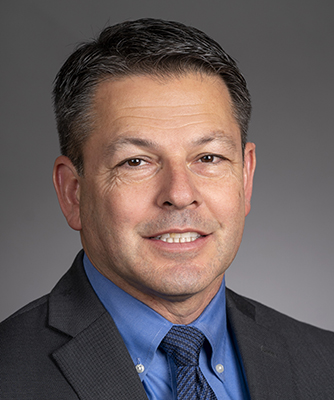 Menu
Menu

By Christopher Jay
We sat down with William Perales to discuss his new role as the director of PreK-12 Curriculum and Professional Development Services for the University of Dallas’ St. Ambrose Center for Catholic Liberal Education and Culture.
What does your new role entail for the University of Dallas?
UD offers several resources to foster classical education, and one of them is the PreK-12 classical curriculum initiative that I will be overseeing as the director of PreK-12 Curriculum and Professional Development Services. My role includes writing curricula in the classical tradition for elementary, middle and high schools, providing professional development to teachers and administrators, and educating parents on the value of classical education. We'll be working with private schools, charter schools and Catholic schools. While the program started with schools in the Dallas/Fort Worth area, we now serve schools in Houston and Austin as well, and we’re in conversation with schools in Michigan, Utah and Wisconsin. We’re open to working with schools at a national level.
What drew you to this opportunity at the University of Dallas?
I used to work in the Diocese of Fort Worth, so I’ve been following how UD has been an advocate for classical education through its graduate program and the Arts of Liberty program. When this opportunity opened up, it felt like a great fit since I had experience helping schools adopt or develop a classical education model. Additionally, I used to work in Fort Worth as a principal for a couple of schools, and my wife and I wanted to come back to Fort Worth since we love the area and because it has such a great Catholic community.
How do you define “classical education”?
Classical education forms and prepares one to live a life of freedom for excellence and human flourishing because it accords with our human nature and what we are called to be and do. Understood in this way, we can say that classical education is the formation and encouragement of virtue and wisdom in students through cultivating in them things that are true, good and beautiful. This occurs in many ways inside and outside the classroom: faith experiences, excellent academics and student life opportunities where students can discover and develop their gifts and talents. As this happens, the whole person is formed spiritually, morally, intellectually and physically so that through their affections they delight in and love the beautiful, through their wills they choose the good, and through their intellects they seek the truth.
What was your own first encounter with classical education?
When I was a student, I actually didn’t hear much about the term “classical education.” I went to the University of San Francisco, where I studied in the St. Ignatius Institute, a wonderful Catholic liberal arts Great Books program. At the time, I just thought it was a good liberal arts education in the Catholic tradition. It was when I started teaching that I became familiar with the classical education movement, and it was then that I realized this was quite similar to the liberal arts education I received during college.
Why do you think this type of education is so important and valuable today?
We live in a culture now where everything has become relativistic or individualized, and we often hear people say things like “this is my truth” or that everything is subjective. While some things may be subjective, this view doesn’t have any underlying truth holding it all together. Our society is in need of something to hold onto and to keep us together. That’s why I think classical education is so important for students in elementary school, especially because it helps them develop a strong foundation grounded in truth, beauty and goodness.
How can classical education foster faith in students?
Younger generations today frequently don’t have a broad cultural foundation for strong or traditional Christian beliefs. More and more people are considered “nones” when it comes to their religious identity, meaning they don’t ascribe to any faith tradition. While there are many families beautifully providing a strong faith culture, the broader society is very different and even challenging for families who are also trying to form and educate their children for a life of faith and freedom. As a result, we can no longer assume that faith-related principles are embedded in our culture. Classical education can dispose one to be open and ready to have that encounter with Christ and pursue an intentional relationship with Him as His disciple in the Church.
What excited you most about this opportunity at the University of Dallas?
I’m excited to help schools move in the direction of classical education and help them grow and deepen their foundation through the University of Dallas’ program. UD has been such a great representative of the liberal arts and classical education, and this is a way to broaden it into the elementary, middle and high school levels. It's exciting to help schools teach in ways that are beautiful and to help students of all ages rejoice in the truth.